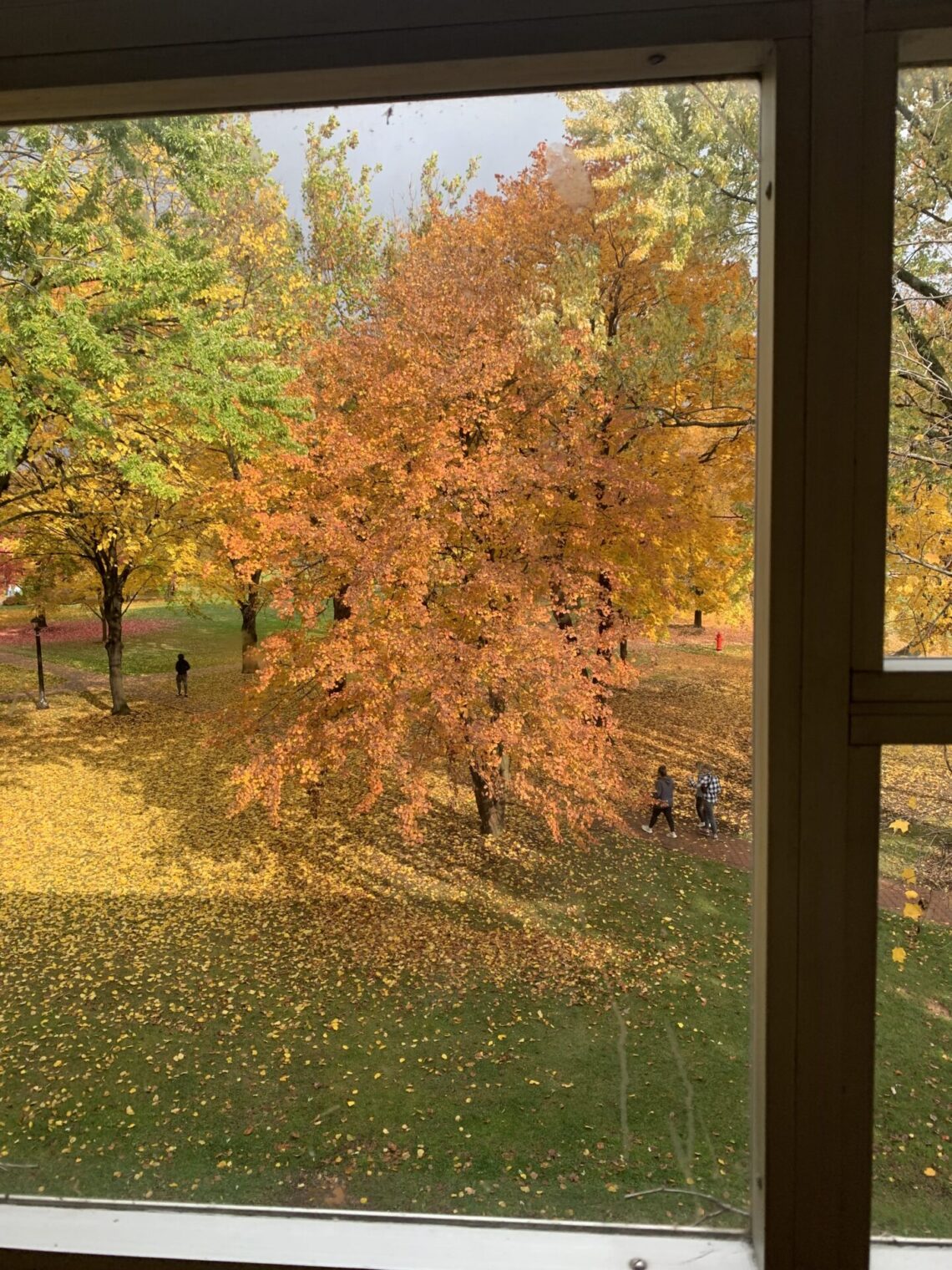Prompt: Reflect on your VP experience across the year, identify and describe ten big ideas that you will take with you as the result of this experience that will help you as an educator.
The Village Project has given me an opportunity to really grow, learn, and find a passion for working with students and becoming a teacher. As an employee, I was placed with the 21C Program at a local elementary school, and I am very grateful I made that choice. I feel that the bonds and relationships I have created with my students has allowed me to make a meaningful impact on not only their lives but my own. On the hard days, I am able to remember my “why” because of the students I get to teach. Especially as this year comes to a close, the burnout of my personal life and school translates into how I feel during my work, but I have been able to push that aside because of the students and their needs. Not only have I been able to learn a lot about myself this year through my job as an Afterschool Staff, but I have also learned a lot about what my role as a teacher needs.
So back in December, I created my Top Ten Village Project Takeaways that I have edited and thought about throughout the year. The majority of them have remained true, many of them have been added to, and there are also some new ones that have popped up due to this last semester. In no particular order, here are 10 big ideas I will take with me from my experience with the Village Project:
- It’s important to pick and choose your battles. This is something I had to learn working with the afterschool program. Before this, I only had a couple situations at my summer job with behavioral management, and it was nothing compared to my experience with the ASP. Going into the job, I felt like I needed to micromanage everything that they do and make sure that they’re doing exactly what they are supposed to. However, I learned that there is no possible way for me to control everything they do and that I need to pick the problems that are causing the biggest issues. For example, I’m not going to engage in talking to them about bottle flipping their milk at dinner, because the more attention I give to it, the more they’ll want to do. Eventually they’ll stop and nobody is being harmed. However, I will talk to them about climbing up the set-up tables in the cafeteria, because it’s extremely dangerous. This idea has saved me throughout my experience so far and I know continues to save me on a daily basis with my students.
- There are no bad kids, just misunderstood ones. Every child is different. Every child has their own lives at home that we don’t get to see. They are all going through their own things and especially when they are young, they don’t understand how to express their emotions properly. There are reasons for the way they act and making sure they know that one bad decision doesn’t make them a bad kid is really important for improvement in behavior. I have always had to take a step back and understand that many of the students’ circumstances are difficult for even adults to handle. Let alone, they spend all day in school and an extra three hours after school continuing to learn. Their brains are overstimulated and can only handle so much, so when they act out, I try to come from a place of understanding.
- Most parents actually do care about their children, just don’t have the resources or time to give them enough attention. Goes hand in hand with the previous one, because most of the parents I have met really do care about their children. However, they may not have the proper resources to provide everything their child needs. Many work long hours, are single parents, and are trying to make ends meet, so lots of their time isn’t directly focused on their children. That is why they put them in the afterschool program so that where they are lacking (in time, resources, attention), we can try to support them. The lack of attention at home can cause students to want to receive that at school and in turn, makes them act out. However, if we can redirect negative behavior, take interest in lives, and try to understand them, I have seen the world of a difference it makes.
- Building relationships is essential. Building trust and creating bonds with the students is the only way to have a successful experience, especially when working at at-risk schools. I had to take time building the foundation with my students so that they could trust me and feel comfortable around me. I have found that as I’ve really gotten to know my students over the past 9 months, I have a lot fewer difficult days. Listening to my students’ needs and stories and finding out more about their interests and lives makes them feel loved. By asking questions about them and their days, they know I care about them and want to hear what they have to say. When they are upset or need a break, they know they can talk to me. With this year coming to a close, I am the most grateful for the relationships I have been able to grow with my students. Even though, I have gone through many different group sizes and students coming and going, I have been lucky enough to build that trust and respect that is essential for a productive year.
- Patience is a virtue and kindness will get you far. They will talk over you. They will test every inch of patience you have. And they will push all your buttons until you want to explode. But what I’ve learned is that taking a step back, understanding that they’ve been at school for 10 hours, and their focus is going to be less for me, has helped me so much. By putting myself in their shoes and not reacting negatively, I have realized that patience is one of the most important things when it comes to working with children at all. I am able to play to the strengths of my individual students and help them take breaks and be patient with themselves as well. Going along with patience, being kind has helped me so much. These kids just want love and attention and sometimes they do things that make it really hard not to want to yell. However, when I react with positivity and in a calm manner, they see that I come from a place of understanding.
- Simple is better. This is something I never thought I would be able to grasp or really emulate in my teaching. When watching videos and seeing other teachers post their activities online, it always seems like everything is extravagant and complex. However, throughout this year I have learned that most of the time, the simple things are the most fun. By bringing in simple crafts for club, providing them with options for academic time, and giving them the freedom to be creative with activities, I have been able to worry less about building an elaborate plan for the day, and instead help them focus on having fun. Plus, most of the complex activities, end with frustrated students and impatient teachers.
- Kids need reassurance and constant repetition. This is something that I had to really get used to. Sometimes it feels so redundant and pointless to constantly be repeating myself, but I’ve seen how much it helps my students. Especially because they are so young, they need step by step instructions in order to feel safe and prepared. Every day we go over the same expectations when we get to class. I always explain directions more than once and I reassure them that I’m there to help.
- Setting boundaries and being stern is so crucial. I struggled a lot with this in the beginning because I never really worked in a setting where it was so extremely necessary. I make the expectations very clear for them and they understand that consequences will come if they cannot follow them. I am not stern in a way that is scary or mean, but I make sure that each student is held to the same standard. When lines are crossed, there are consequences and then most of the time, those actions do not occur by the same person again. This has helped me create a safer, more efficient, and more effective environment for all of my students. As the year has progressed, they definitely stop caring about what their teachers (me) have to say and kind of just want to walk all over you. Sometimes it feels pointless to redirect their behavior and maintain your boundaries and expectations, but it is something that has been crucial for me and my afterschool classroom.
- Burn out is real. This is a hard truth that I would be lying if I said didn’t terrify me. In the past, working at a summer camp, I felt some burnout, but I figured it was just because I was working all day, every day, and had to take care of the campers overnight. However, what I didn’t realize is that even just working a couple hours after school would cause an even greater burnout for me. I think with the stress of my life outside of work and then trying to juggle that with a very hands-on job, I have felt very drained. It is difficult because I want to give my students my all, but I’ve learned that sometimes my 100% on a bad day is my 20% on a good day. It won’t always be the same and I have been lucky enough to have a good support team and been able to remember why I love my job, but this is something that I am definitely scared about for the future.
- Being adaptable is necessary because every day is different. I think that this is a no brainer when it comes to teaching, but it is something I’ve found to be so important. There are going to be really good days and really bad days. Some activities won’t be finished, and some will only take them 10 minutes. It’s so important to have an extra plan in case this does happen. I always bring extra supplies and I start each day with the attitude that every day is new. I try to be as flexible as possible and give my students options to choose from so that I feel as prepared as possible.
So as you can see, the Village Project has taught me so much about the world of teaching and working with children. I feel like I have gained a lot and will continue to learn as I finish out the rest of this year, but I am truly grateful and excited to implement these ideas into my summer as a camp counselor, next school year’s afterschool program, and my future as a teacher.



